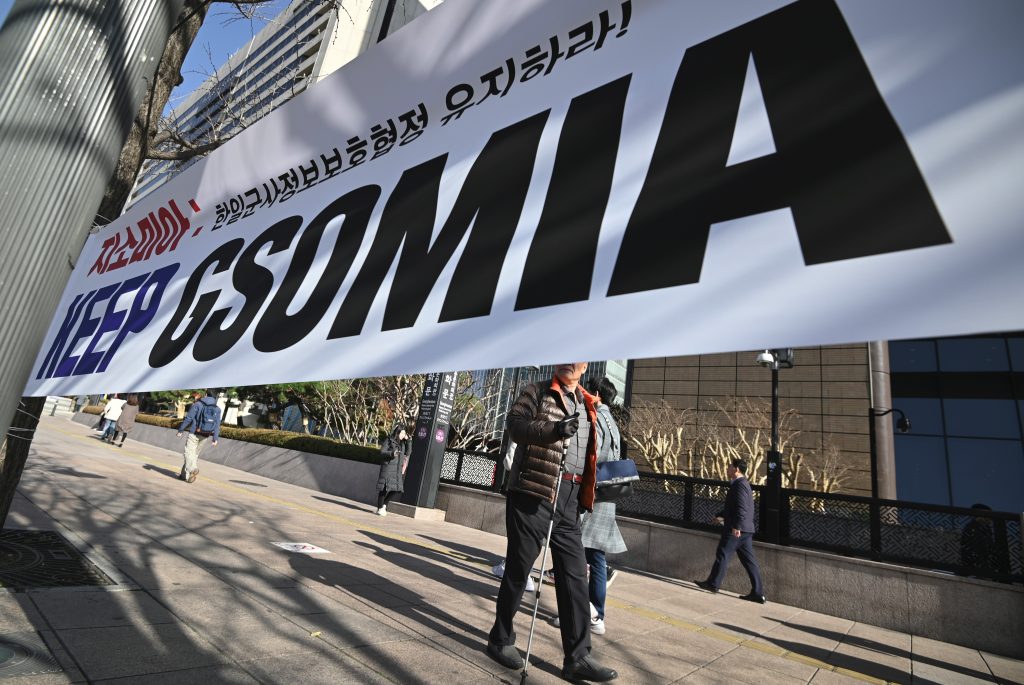
- ARAB NEWS
- 03 May 2024

Seoul
The South Korean government on Friday announced a policy of effectively extending its military information-sharing agreement with Japan, hours before its scheduled expiration following Seoul's earlier decision to scrap the pact.
The government said it suspends the validity of its notice to Japan on the decision to scrap the General Security of Military Information Agreement, or GSOMIA, on the assumption that it is possible to let the pact expire any time.
"Cooperation between Japan and South Korea and among the two Asian neighbors plus the United States is extremely important for dealing with North Korea," Japanese Prime Minister Shinzo Abe told reporters in Tokyo on Friday, in response to the latest South Korean decision. "South Korea apparently made the decision to extend the pact from such a strategic point of view."
Seoul will also put on hold procedures for a complaint it filed with the World Trade Organization against Japan's tightened controls on semiconductor materials exports to South Korea, introduced in July, as long as bilateral dialogue continues.
Frustrated at the Japanese action in July, South Korea in August decided not to renew the GSOMIA and informed the decision to Japan. Following the August decision, the GSOMIA, concluded in 2016, was to expire at midnight Friday. But the Japanese and South Korean governments continued last-minute talks and successfully prevented the pact from expiring, at least for now.
Following the launch of the tighter chip materials export controls, Japan in August removed South Korea from its list of trusted trading partners qualified for preferential treatment in export procedures.
The GSOMIA is regarded as a symbol of trilateral cooperation among the United States and its two Asian allies over security in Northeast Asia.
Friday's development, however, warrants no optimism for any improvement in the Tokyo-Seoul relationship, as a wide gap remains between them over the wartime labor issue, a major cause of their soured ties, pundits said.
The eleventh-hour announcement by Seoul came after the South Korean government held a National Security Council meeting with participation by President Moon Jae-in earlier on Friday to discuss its handling of the GSOMIA. South Korea informed Japan of the Friday decision in writing.
Until now, the one-year pact has been automatically renewed every year, with neither of the two parties wishing to end it.
Tokyo takes the position that the tighter export controls were implemented on security grounds, while Seoul claims that the trade measures were imposed in retaliation for South Korean Supreme Court rulings last year that ordered two Japanese companies to pay compensation to South Koreans requisitioned to work for them during World War II.
Japan will continue urging South Korea to correct its violation of international law over the wartime labor issue, which is the fundamental cause of the deterioration in the bilateral relationship, Japanese Foreign Minister Toshimitsu Motegi said Friday.
Tokyo's position is that the wartime labor issue was settled under a 1965 bilateral pact on property and claims. Japan thus claims that the South Korean top court rulings were against international law.
[Jiji Press]